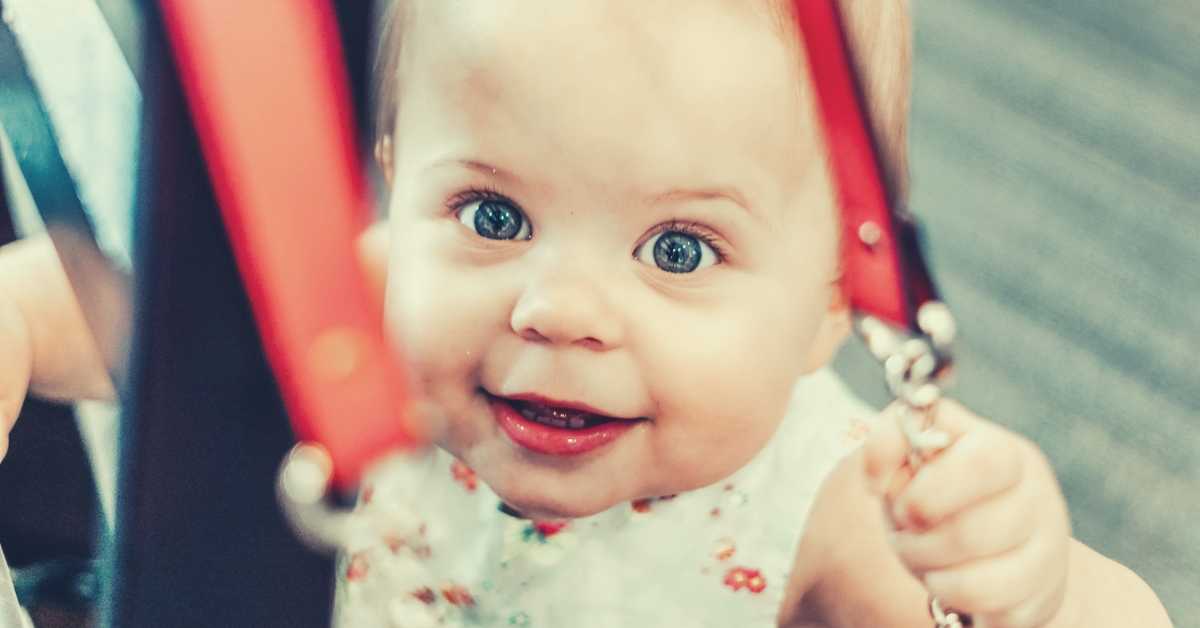
Travelling with a newborn baby on a plane can be very stressful, particularly if it’s your first child and takes a lot of careful planning. Like many parents, you probably don’t want to go anywhere except home with your new baby. She needs lots of attention and feeds, so travelling long distances and going on holiday can be difficult to manage. But enjoyable travel is possible, and we have some tips, tricks and useful advice that will help make the journey go smoothly for you:
Traveling with an infant tips and tricks
Check with your airline about their newborn rules
If you are travelling with a newborn it’s worthwhile checking if your flight has any rules regarding travelling with a newborn. If the baby does not have its own seat, some airlines will allow your newborn baby to travel for free. Certain airlines will not take very young babies due to the baby’s fragile immune systems – for example, Air Canada and United Airlines generally don’t allow babies under seven days old to fly.
Remember to book a baby bassinet
Find out if your airline allows you to pre-book a baby bassinet. Many airlines have a “first come, first serve” policy and there can be several newborn babies on the flight. So, try and check in early and ensure you have your bassinet reserved. Being able to place your baby in a bassinet allows you to get some sleep and makes the flight a lot easier – especially if you are travelling on your own.
Aim for an aisle seat near the restroom
Changing a nappy on board can be a difficult task, so it helps if you are not trapped in your seat between people. Try to book an aisle seat near the restroom so you have quick access to water and rubbish bins.
Don’t worry about regulation on liquids
Breastfeeding and formula-feeding mothers do not have to worry about limits on liquids. Formula, breast milk and juice in quantities over 3.4 ounces or 100 millilitres are allowed in carry-on baggage as are any ice or frozen gel packs required to keep formula cool. You can also bring any cans or jars of processed baby food in your carry-on luggage.
Place your baby bag under the seat in front of you
You will need quick access to your baby bag, so place it under the seat in front of you, so you can quickly grab wipes, nappies and tissues during the flight.
Pack items separately
Try and pack your items separately. For example, have a small pack for nappies, dummies and wet wipes and another small pack for feeding bottles and clothes. Different toiletry bags in your main baby bag are ideal for separating things – the last thing you want is to be rummaging around in your bag for nappy cream as your baby screams!
Have a baby carrier you can wear
You will often have to check in your baby pushchair with your luggage or at the door of the plane, so having your newborn baby in a carrier you can wear gives you free hands, which makes things a lot easier.
Feed the baby during take-off and landing
Changes in cabin pressure can affect your baby’s ears so try and nurse or bottle-feed your baby during ascent and descent as this helps to keep their ears open. Your baby’s milk and food is not subject to the same maximum restrictions as other liquids for aeroplane cabin baggage. You are allowed to carry enough for your baby’s journey.
Pack extra clothes for you too!
Babies can be very messy and motion sickness can contribute to the chaos. Pack some extra clothes for yourself and your baby in case an accident happens.
Try to stay calm and relaxed
Making sure you are both feeling calm and rested is a good start. The tenser you become, the tenser your baby will be. Crying is normal and other passengers might not notice it as much as you think – most will have their earphones on listening to the in-flight entertainment!
Walk the aisles
If all fails and your baby doesn’t settle, get up and walk up and down the aisles. The motion often calms a baby and once it has dropped off, you can place it in its bassinet and try and get some sleep yourself.
Choosing the right travel gear will certainly help smooth the journey and make it easier to explore your destination once you arrive. If you are a South African living abroad and would like to know more about how you can maximise your finances through financial emigration from South Africa, accessing your South African retirement annuity and our tailor-made tax solutions for South Africans around the world, contact FinGlobal today.